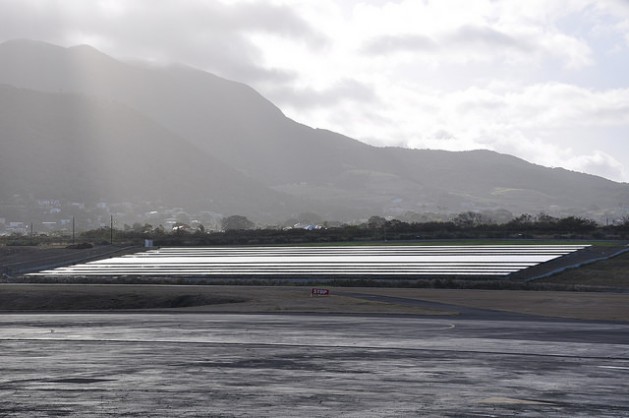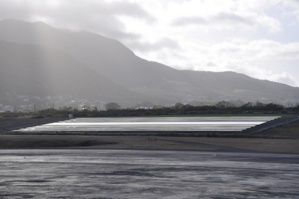Fort-de-France – 24 July 2015 – Experts are of the opinion that global warming is turning the islands of Caribbean into “a ticking time bomb”. Consequently, the “leading geothermal” scientists have warned that in the present hour dire emergency shifting away “from fossil fiels to renewable energy” would be the sole wise way to “defuse” the effects of the coming disaster.
The foundation of “Ocean Geothermal Energy” aims to provide the financial support for the research and development work needed to explore the possibilities of turning the vast reservoir of “geothermal energy resources” into a steady source. Addressing the issues of climate change and global warming threatening the Caribbean Islands, the president of OGEF said:
The foundation of “Ocean Geothermal Energy” aims to provide the financial support for the research and development work needed to explore the possibilities of turning the vast reservoir of “geothermal energy resources” into a steady source. Addressing the issues of climate change and global warming threatening the Caribbean Islands, the president of OGEF said:
“…you’ve got a ticking bomb there and we’ve got to defuse that bomb and if I were to rate the issues for the Caribbean countries, I would put a heavyweight on that one.”
Over the last few years the “rising sea level” is swallowing the Jamaican Pedro Cays in a steady manner. In fact, the scientists fear that the continuous rise in sea level will eventually drown all the islands starting from the region of “Maldives to the Marshall Islands”. Moreover, huge portions of low-lying countries like Egypt and Bangladesh and all the other lower “scores of coastal cities”. However, Shnell gives hope to the countries by suggesting them to turn towards “renewable energy” which will “essentially eliminate” the brooding threat of global warming, whereby he adds:
“The primary driver of climate change is greenhouse gasses and one of the principal ones in terms of volume is carbon dioxide.
“For a long time a lot of electricity, 40 per cent of the electricity produced in many countries, would come from coal because it was a very inexpensive, plentiful form of carbon to burn.
“But now countries have seen that they need to move away from that and in fact the G7 just earlier this month got together and in their meeting, the leaders declared that they were going to be 100 percent renewable, that is completely stop burning carbon, coals and other forms of fossil fuels by the end of this century. The only problem is that for global warming purposes that’s probably too late”.
Experts like Shnell, gathered together in the “Martinique Conference on Island Energy Transitions” to discuss the options of “renewable energy development in the Caribbean” so as to arrive at a feasible alternative for the risks of climate change knocking at the door step of the Caribbean Islands. The IRENA or the “International Renewable Energy Agency” in collaboration with the government of France, took the charge of hosting the conference.
Experts think the conference was a timely step towards addressing the global issues of climate changes with utmost urgency with the help of technologies, governmental intervention along with sufficient funds to support the effort. Although, there is “a lot of climate funds” which are being sanctioned to “promote clean energy”, there is a fund crunch to execute such projects in small island countries. Therefore, the conference has been an attempt to channelize the available funds in order to help the small island countries. Moreover, keeping the rising cost of oil and the pollution generated by it during its consumption process in mind experts advice that the islands of Caribbean should turn to solar, wind, geothermal and hydropower.
References:
http://www.ipsnews.net/2015/07/caribbean-seeks-funding-for-renewable-energy-mix/


 Experts Seek Climate Funds To Help Caribbean Islands
Experts Seek Climate Funds To Help Caribbean Islands





 Companies
Companies